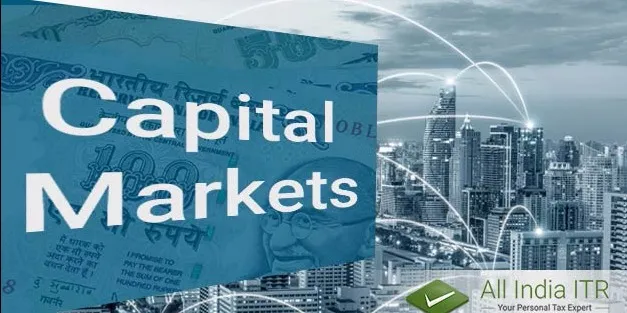

Does GST affect capital markets
Tax compliance platforms can provide with a very accurate record of accounts. This is necessary to correctly assess yourself for income tax on capital gains.

Much has been discussed on how GST impacts various sectors like Logistics, small businesses, the automobile sector, FMCG and so on but little of that discourse tells us how GST affects Capital Markets.
Financial Markets exist to provide funds to borrowers via lenders. Since individual organizations may not be always be able to lend large sums of money on demand, Capital markets exist, to allow methods where small funds can be pooled together to form a single large corpus. Large scale projects such as commercial shipping and airways, oil refineries etc. require huge amounts of capital as soon as the need arises.
The securities market comprising of shares and many other instruments of debt is, perhaps, the most well-known capital market in India. But equally subscribed and perhaps, even more so, are debentures and bonds. These are debt instruments where the liability of the firm being subscribed to is greater but at a lesser return than securities.
Note that the GST is essentially an indirect tax regime. By enforcing a single uniform tax code throughout the country, it has made GST compliance easier, more transparent and free of leakages.
By way of the Input Credit Tax provision, it is possible for businesses to get refunds for tax already paid when they purchased their supplies.
GST has the potential to disrupt markets as prices will increase in the short term. Other disruptions include changes to ERP software, GST compliance, adapting to online processes, especially, in view of a large informal sector and so on.
Some Possible Effects of GST on Capital markets
People who invest in capital markets will be affected by the GST regime in the form of an increase in tax on services for capital gains from the previous 15% to 18% under the new regime. Because percentage changes in indirect tax affect investor decisions, it can be expected that short term capital gains will decrease and long-term capital gains will increase as the base capital is larger in the latter. So, there could be a trend towards long-term securities and debt instruments in place of short-term instruments.
Secondly, commonly traded but less volatile equities by firms producing light automobiles, Fast Moving Consumer Goods, and durable brands will probably see an increase in trading traffic. Investors foresee increase in profits to these firms because of simpler compliance, advantages via e-way bills and lower impediments to inter-state movement of goods.
Some pundits also predict a trend toward more balanced but diversified portfolios. The reason for this is that indices are expected to follow pure market signals more closely due to the removal of one of the main barriers to free competition.
For the very short term, bullish market sentiments may push up the value of equities and any sales made to take advantage of this spurt will see a growth in capital gain incomes. For the long term, however, statistical collection of data and statistical estimation via the tools of econometrics will tell us the full impact of GST. This could take, at the very least, a couple of years.
The equity market is an indirect market. Commodities traded are non-tangible assets, the value of which is realized only when market indices move in relation to demand and supply. This demand and supply is in turn influenced by very basic psychological and behavioural trends.
At these times, professional tax compliance platforms can provide you with a very accurate record of accounts. This is necessary to correctly assess yourself for income tax on capital gains. The larger your risk, the more careful you must be of compliance issues. Online filing of income tax and concomitant consultancy services are available today at very reasonable rates due to the enhancements in related technology.





